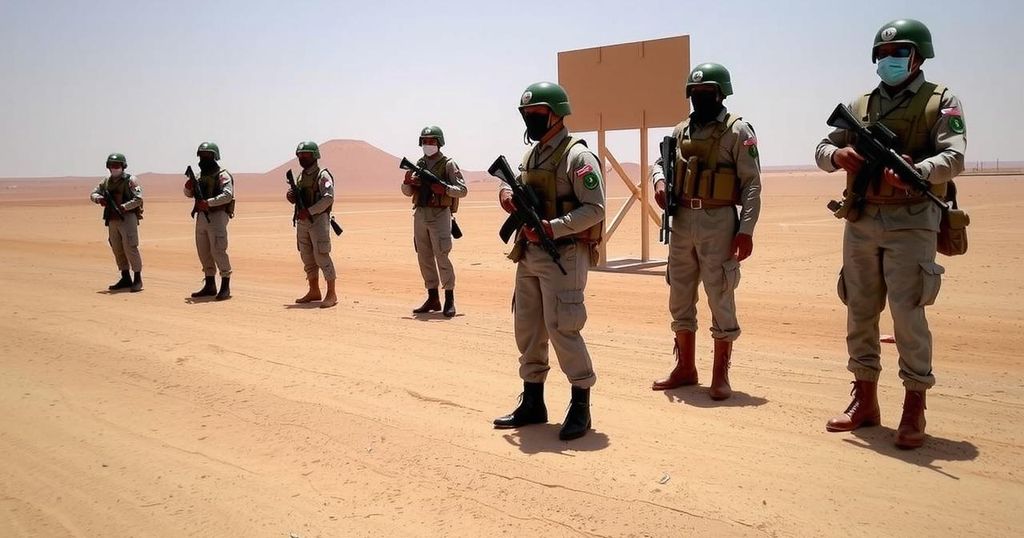Global news
ABD, ABDELATTY, AFRICA, AFRICAN UNION, AFRICAN UNION PEACE AND SECURITY COUNCIL, AFRICAN UNION SUPPORT, AFRICAN UNION SUPPORT AND STABILIZATION MISSION IN SOMALIA, AFRICAN UNION TRANSITION MISSION IN SOMALIA, AGENCE FRANCE - PRESSE, AHMED MOALIM FIQI, AL - SHABAAB, ATMIS, AU, AU PEACEKEEPING FORCE, AUSSOM, BELGIUM, BLUE NILE, BRUSSELS, DIPLOMACY, ERITREA, EUROPE, FM, HASSAN SHEIKH MOHAMUD, HORN OF AFRICA, INTERNATIONAL RELATIONS, ISLAMIST AL - SHABAAB, JSA, MAF / BHA, REC, REGIONAL COOPERATION, REGIONAL SECURITY, STABILIZATION MISSION
Fatima Khan
0 Comments
Egypt to Contribute to New African Union Peacekeeping Force in Somalia
Egypt’s Foreign Minister announced the nation’s participation in a new AU peacekeeping force in Somalia, aimed at addressing militant threats amidst rising tensions with Ethiopia. This move signals strengthening ties between Egypt and Somalia, supported by recent diplomatic engagements and military agreements, while underscoring Somalia’s sovereignty.
On Monday, Egypt’s Foreign Minister, Badr Abdelatty, announced the country’s participation in a newly established African Union peacekeeping force in Somalia, amid escalating tensions with Ethiopia. This decision comes after a request from the Somali government and support from the African Union Peace and Security Council. With the current African Union Transition Mission in Somalia set to conclude on December 31, the new force, known as the African Union Support and Stabilization Mission in Somalia (AUSSOM), will focus on addressing threats from Islamist militants, specifically the Al-Shabaab insurgents.
Abdelatty emphasized the importance of Somalia’s sovereignty, dismissing any external pressures that might affect the nation’s unity and safety. This announcement coincides with recent developments in the region, including a mediated resolution by Turkey resolving protracted disputes between Somalia and Ethiopia. While Somalia previously indicated that Ethiopian troops would not be included in the AU peacekeeping initiative, it has openly welcomed Egypt’s involvement.
The details surrounding the scope of Egypt’s role in the new mission remain unclear, although there is a noted intention for a strategic partnership between Egypt and Somalia. These relations have been further bolstered by a military cooperation agreement established during a visit by Somali President Hassan Sheikh Mohamud to Cairo. Moreover, an October summit convened in Asmara with Egypt, Eritrea, and Somalia suggests a regional alliance increasingly countering Ethiopia, particularly in light of the contentious Grand Ethiopian Renaissance Dam, which Egypt fears could jeopardize its water resources.
The announcement of Egypt’s commitment to join the African Union peacekeeping force in Somalia comes against a backdrop of heightened regional tensions, particularly those involving Ethiopia. Egypt’s involvement appears strategically motivated, aiming to strengthen its relationship with Somalia, a country with its own ongoing struggles against militant groups. The recent developments also signify shifting alliances in the Horn of Africa, where Egypt and Somalia seek to position themselves against perceived threats from Ethiopia following its maritime agreements with Somaliland. Additionally, historic grievances regarding the Grand Ethiopian Renaissance Dam continue to influence Cairo’s foreign policy decisions in the region.
In conclusion, Egypt’s decision to participate in the African Union’s new peacekeeping force in Somalia marks a significant step in enhancing its diplomatic and military alliances in the Horn of Africa, particularly in response to tensions with Ethiopia. Egypt’s commitment, driven by Somalia’s invitation and the backing of the African Union, highlights the importance of regional cooperation against common threats, such as Islamist insurgency. This evolving dynamic reflects a broader strategy to ensure national security while navigating complex geopolitical relationships in the region.
Original Source: www.barrons.com




Post Comment